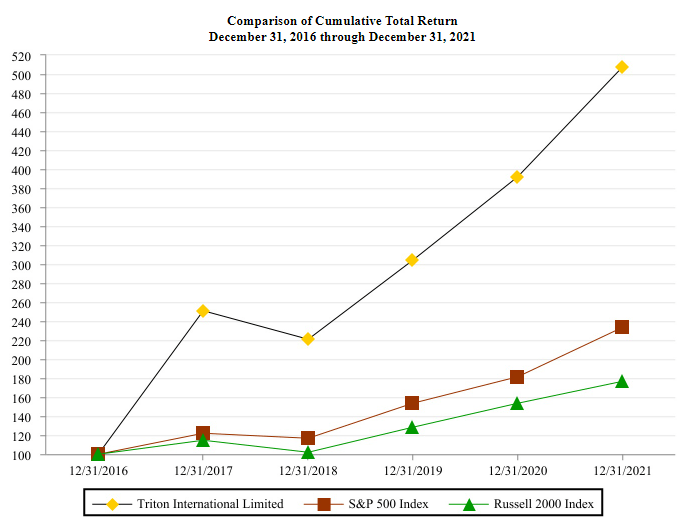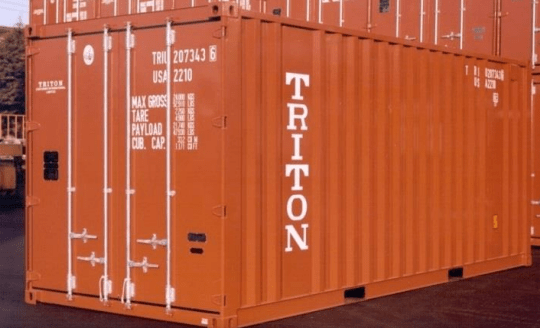Triton International Limited (Triton) is the world’s largest intermodal container lessor.
Intermodal containers are large standardized steel boxes used to transport goods by ship, train or truck.
As of year-end 2021, Triton’s total fleet consisted of 4.3 million containers and chassis, representing 7.3 million 20-foot equivalent units (TEUs) or 8.0 million cost equivalent units (CEUs).
Through a worldwide network of local offices, the company has an extensive global presence offering leasing services and using third-party container depots spread across 46 countries to provide clients with global access to their container fleet.

Above all, its customers include the world’s largest container shipping lines.
Its global field operations include sales, operations, equipment resale, and logistics services.
Triton
Due to the handling efficiencies they provide, intermodal containers are the primary means by which many goods and materials are shipped internationally.
The company also rents chassis, which are used for container transportation.
In addition, Triton’s operations include the acquisition, leasing, re-leasing and subsequent sale of multiple types of intermodal containers and chassis.
The most important driver of your profitability is the extent to which your rental income, which is driven by your owned equipment fleet size, utilization and average rental rates, exceeds your owning and operating costs.
Profitability is also driven by the profit or loss you make on the sale of used containers and the margins generated by trading new and used containers.
Intermodal containers provide a safe and cost effective method of transporting raw materials, components and finished goods because they can be used in multiple modes of transportation.
By making it possible to move cargo from a point of origin to a final destination without repeated unpacking and repacking, containers reduce freight and labor costs.
In addition, automated container handling enables faster loading and unloading of vessels, more efficient utilization of transportation equipment, and reduced transit time.
The protection provided by sealed containers also reduces cargo damage and loss and theft of goods during shipment.
![]()

